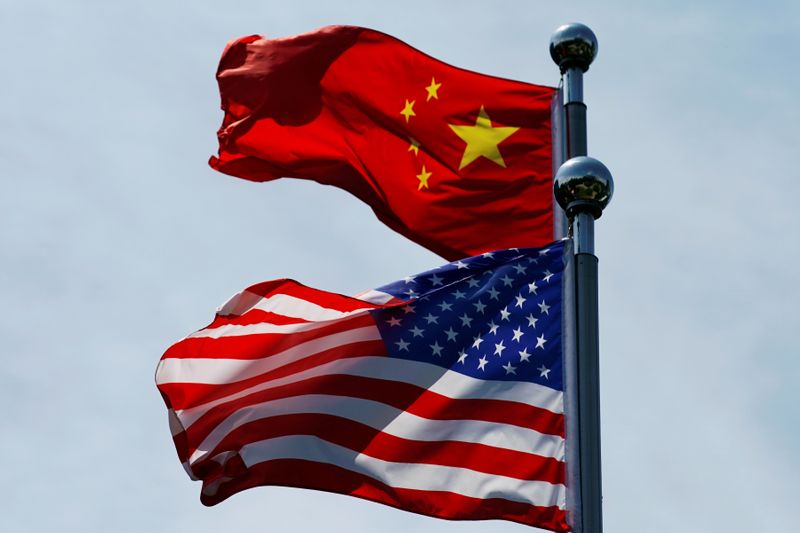By Andrea Shalal
WASHINGTON (Reuters) - The U.S. Chamber of Commerce and over 40 trade associations on Monday urged top American and Chinese officials to redouble efforts to implement a Phase 1 trade agreement signed by the world's two largest economies in January despite pandemic-related strains.
In a letter to U.S. Treasury Secretary Steven Mnuchin, U.S. Trade Representative Robert Lighthizer and Chinese Vice Premier Liu He, the groups said they were encouraged by the progress so far, but urged a significant increase in China's purchases of U.S. goods and services.
They said combating the novel coronavirus pandemic and restoring global growth depended in part on successful implementation of the U.S.-China trade deal, which helped defuse a nearly 18-month trade war marked by tit-for-tat tariffs.
The agreement called for China to purchase $200 billion in additional U.S. goods and services over the next two years.
Jeremie Waterman, who heads the Chamber's China Center, said some progress had been made on structural issues and purchases of farm goods, but China needed to step up its purchases of U.S. manufactured goods, services and energy to meet its targets now that its economy was starting to recover from the pandemic.
"There are areas where we see less progress and where we think it's critical that both sides redouble efforts," Waterman said.
U.S.-China tensions have spiked in recent months over the origins of the coronavirus outbreak and passage of a new national security law that limits Hong Kong's autonomy.
U.S. President Donald Trump had said that "decoupling" the two economies remains an option, and his trade adviser Peter Navarro jolted markets last month when he said the U.S.-China trade agreement was "over," although he quickly backtracked.
White House Chief of Staff Mark Meadows said on Monday the U.S. president was considering several executive orders targeting China and manufacturing, but gave no details.
The U.S. industry groups listed specific recommendations in an annex to the letter, including increased purchases of U.S. aircraft and components, cars and medical devices, as well as cloud services and U.S. energy products.
Accelerated implementation of the trade deal would help both countries while paving the way for Phase 2 talks on other key issues such as subsidies, cybersecurity and digital trade, they said.

"Amid increasing bilateral tensions across the relationship, working together to improve trade and grow commerce can provide important benefits to both economies and help to improve relations," they wrote in the letter.